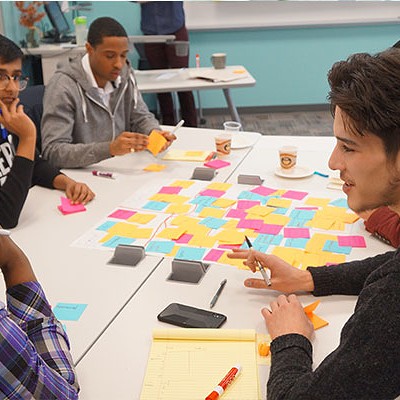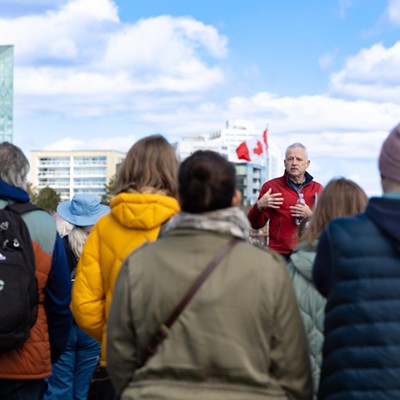
The Master of Resource and Environmental Management (MREM) at Dalhousie's School for Resource and Environmental Studies is a unique program, with a history of offering a transformative experience that allows students from almost any undergraduate to pursue a career unrelated to anything they would have considered before they started. Whether coming from engineering, the humanities, natural sciences or the arts, students are able to craft a program unique to their ambitions.
Take Simone Charron, for example. She wanted to transition from civil engineering into another area in the environmental field, but wasn't sure of where she wanted to go. Upon entering the MREM program, she was welcomed with open arms and knew that this intimate program would provide her with the skills and experience necessary to open up her career options.
Simone's greatest challenge was to shift her thinking from problem-based to writing and critical thinking, and she wasn't alone in this. However, the diversity of those who come into MREM adds a well-rounded value to the program.
"The cohort really opens up your understanding of work in the environmental field, as well as the intersection of environment and social issues."
Within the various courses, students discussed the topics and trends they observed in the environmental space, and over time Simone realized she was strongly drawn to issues linked to climate-change mitigation.
"The internship was extremely valuable in helping me explore this interest. I had the opportunity to work as a research assistant with Environmental and Climate Change Canada in Ottawa in the Carbon Pricing Bureau, right at the time when the federal government was assessing carbon pricing plans put forward by provinces and territories."
Prior to MREM, Simone had some interest in the municipal realm, mostly from a planning perspective. During MREM, she was able to explore concepts ranging from carbon pricing and energy systems to urban forests and public policy. The internship experience then set Simone up for her final project, where she examined barriers and opportunities for greenhouse gas reduction in municipalities. It was an opportunity to try her hand at a research project in a topic area that she finds captivating, and resulted in her landing her current position as a policy analyst with the Climate Change Unit at Nova Scotia Environment.
Unlike Simone, D.M. Stoneman came from an arts background in psychology and philosophy, with no prior STEM experience. The MREM program prepared him for future roles by teaching him to develop holistic thinking skills and getting him out of his comfort zone.
The group work component of the courses was critical to D.M.'s ability to work collaboratively. As challenging as he says it was, it prepared him for his work today. "I don't think I've had a job since graduating where I didn't have to work with a diverse group of people to complete it."
Thankfully, because of the small size of his group, D.M. felt these projects brought him closer to his classmates. Not only are they still some of his closest friends 10 years later, but they have helped to build his network throughout the industry. "It's hard to go somewhere in the environmental field and not know someone."
MREM's internship component provided D.M. hands-on experience that helped him find work before he had even graduated, providing key skills he could build from.
"It put me on the road to success in my career. I was accepted into a highly selective program at a local engineering firm because of the different viewpoints I picked up in the program."
From there, D.M. pivoted into the province's energy efficiency industry, and has since worked across Canada on a number of award-winning energy projects.
The MREM program gave D.M. what he needed to allow him to follow this passion and work on projects that he deeply cares about. The work he does today makes a real, tangible difference in the world.
Madeleine Chauvin is a current MREM student, and though she hasn't yet graduated, she already has a permanent position lined up with Natural Resources Canada, post-graduation.
"It's not something I could have imagined being capable of doing before this program," she says. Madeleine has shifted from a social sciences degree in international development into a program where she is surrounded by environmentally minded people whose perspectives challenge her to think differently.
She offers the advice to prospective students to not worry about coming from a background that isn't in the sciences. "The program is interdisciplinary and you will do well, as long as you put the work in. All of the professors are here to help, and you will leave with an open mind and new opportunities."
The MREM program is a great fit for students from a range of starting points; from those who know exactly what they want to get out of it, to those who aren't sure where they want to go but know it's in the realm of environmental management. MREM sets students up to explore their environmental interests and wind up where they always dreamed they could be.











